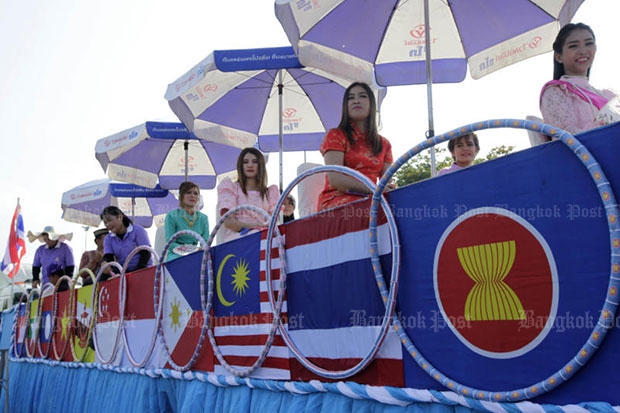
Non-Asean-based investors who have already invested in Asean will now be eligible for privileges enjoyed by their Asean counterparts in five sectors: agriculture, fisheries, forestry, mining and industrial.
The International Economic Policy Committee chaired by Prime Minister Prayut Chan-o-cha yesterday approved a proposal by the Board of Investment (BoI) to lift the restrictions on non-Asean investors.
The change does not apply to other sectors still governed by existing laws such as the Foreign Business Act.
The BoI had asked Asean members to preserve investment in five sectors for non-Asean investors since 2012 for fear that any liberalisation would affect domestic investors. Commerce permanent secretary Chutima Bunyapraphasara said existing laws are sufficient to protect local investors.
The committee also authorised related agencies to prepare for negotiations on trade and services, noting although import tariffs have already been significantly cut, other non-tariff issues are prevalent, especially in services, she said.
Other issues to be raised include intellectual property, labour, human rights, good governance and the environment.
The committee also approved the guidelines for trade negotiations by using a "negative list approach", which identifies sectors and businesses that are off-limits or restricted for investment, rather than a focus on a list of goods and services that would be liberalised.
Ms Chutima said the ministry proposed the focus of the negotiations be on strategic partnerships, particularly with China, South Korea, India and Japan.
Asean and Asia will be the focus of trade negotiations, especially under the 16-member Regional Comprehensive Economic Partnership (RCEP), she said. Trade ministers from RCEP members agreed this month to push for conclusion this year.
RCEP's 16 proposed countries represent 29% of global trade or US$9.5 trillion. It is viewed as an alternative to the Trans-Pacific Partnership (TPP) trade agreement, which includes the US but excludes China. Twelve Pacific Rim countries concluded the TPP on Oct 5 last year, with the members making up 40% of global trade.
Ms Chutima said Thailand is expected to start negotiations on joining the TPP by February 2017.